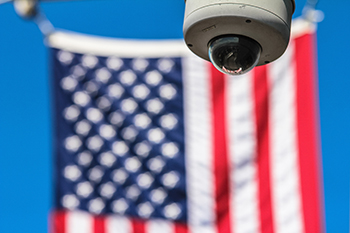The Best Security Clearance For Jobs
Do you want to work in the government or as a contractor? If so, you’ll need to have security clearance. This process can be daunting, but don’t worry – we’re here to help! In this article, we will discuss everything you need to know about how to get security clearance for jobs. We’ll cover how to check your security clearance status, what is active security clearance, how to get a security clearance without a sponsor, and more!
What does National Security Clearance mean?
When it comes to the federal government, security clearances are the difference between having access to classified information and not. A national security clearance is an authorization granted to government employees and contractors after a thorough investigation determined that they are loyal to the United States and trustworthy enough to access classified information.
There are three levels of national security clearance: top secret, secret, and confidential. The level of clearance needed depends on the sensitivity of the information being accessed.
- Top secret clearances are required for positions that involve access to information that could reasonably cause exceptionally grave damage to national security if disclosed without authorization. Eligibility for a top-secret clearance is based on an investigation of the applicant’s loyalty, character, trustworthiness, and reliability.
- Secret clearances are required for positions that involve access to information that could reasonably cause serious damage to national security if disclosed without authorization. Eligibility for a secret clearance is based on an investigation of the applicant’s character and citizenship.
- Confidential clearances are required for positions that involve access to information that could damage national security if disclosed without authorization. This eligibility is based on a limited investigation of the applicant’s character.
The History of Federal Agencies
Granting security clearance is relatively new. The first agency to grant security clearances was the State Department, which began doing so in 1916. The second agency was the War Department, which began granting clearances in 1917.
The first major change to the process of granting security clearance came in 1947 with the National Security Act. This act created the position of Director of Central Intelligence and established the CIA. It also established a new system for classifying the information and granted authority to federal agencies to classify information as top secret, secret, or confidential.
What Clearance is needed for the Federal Government?
The most common type of clearance is a “Confidential” clearance. A Confidential clearance requires a thorough investigation into an applicant’s character and conduct, as well as his or her loyalty to the United States. The investigation includes a review of an applicant’s employment history, financial history, and personal life.
A Secret clearance requires a more in-depth investigation than a Confidential clearance, and it may also require the applicant to undergo a polygraph examination.
A Top Secret clearance is the highest level of security clearance that can be granted by the federal government. A Top Secret clearance requires an even more thorough investigation than a Secret clearance, and it may also require the applicant to undergo a polygraph examination. In addition, applicants for a Top Secret clearance must have a “need to know” the classified information that they will be granted access to.
An active security clearance is required for many government jobs and contractor jobs. A security clearance is authorization from the federal government that allows an individual to access classified information.
Process for Clearances
An individual cannot apply for a security clearance. A sponsoring organization must initiate the request for an individual. The request is then forwarded to the proper investigative agency.
The amount of time it takes to obtain a security clearance varies depending on the type and level of clearance required, as well as how quickly investigators can complete their work. In general, however, it usually takes several months to complete the process.
Active duty military personnel, reservists, National Guard members, and certain federal employees may be able to obtain interim security clearances more quickly than others. It is important to keep in mind that having a security clearance does not guarantee you will get a job.
There are many other factors that employers consider when making hiring decisions. However, having a security clearance can give you a competitive edge over other job candidates. If you are interested in working in a government or contractor job that requires a security clearance, there are a few things you need to know about the process.
Security Clearance Process
First, you will need to have your fingerprints taken and submit them to the FBI. The FBI will then conduct a background check. Once the background check is complete, you will be interviewed by an investigator from the appropriate investigative agency.
You will also be required to fill out paperwork detailing your personal history, employment history, foreign travel history, and financial history. After completing the interview and paperwork process, it will be up to the investigative agency to determine whether or not you are eligible for a security clearance.
If you are interested in pursuing a job that requires a security clearance, it is important to be as forthcoming as possible during the application and interview process. The more information you provide, the easier it will be for the investigative agency to determine your eligibility for a security clearance.
Choosing the right Federal Government Agency
The united states government has the complete security package when it comes to hiring authority. With so much personnel management needed for every federal agency, choosing the right security classification can be confusing.
The personnel management’s hiring office will have job postings for a vast majority of national security positions. This involves verification with a background investigation process for most federal agencies to fill jobs.
Executive Branch Agencies
Taking a personnel security questionnaire is common for most job seekers that start with a very basic level of security classification. Some of the best national security positions are considered to be:
#1 – FBI – Federal Bureau Of Investigations:
The application process consists of an extensive background investigation for criminal and personal conduct as well as a security clearance investigation. The hiring process depends on the hiring authority of the position.
For some jobs, you will need to have an active security clearance before you can apply. If you don’t have one, there are a few ways to try to get one:
- The first way is to look for positions that offer “sponsorship” for a security clearance. This means that the company is willing to help pay for your background investigation and help you through the process.
- The second way is to try to get a job with a government contractor. Many of these companies require their employees to have an active security clearance.
- The last way is to check your security clearance status with your current employer (if you have one). If you have an active security clearance, it will be listed on your personnel file.
???? – Salary: The average salary per year for the FBI ranges based on levels of security starting from $57,500 for a GS-05 to $92,592 for a GS-14.
???? – Benefits: With a career in the FBI, you will have access to many benefits including health insurance, life insurance, retirement plans, and more.
???? – Education requirements: The FBI requires that you have at least a bachelor’s degree from an accredited college or university for entry-level jobs with security clearances.
???? – Skills required: The FBI is looking for individuals with a variety of skills including writing, computer science, and foreign language fluency.
#2 – CIA – Central Intelligence Agency:
For this federal government department, a background investigation is standard but this job requires access to more than basic levels of national security information. Any unauthorized disclosure or improperly disclosed information could jeopardize U.S. national security interests and put lives at risk, so the stakes are high.
All applicants will have to pass an adjudication phase before receiving a written offer. Dealing with top secret and classified documents means you’ll be evaluated based on substance abuse, and mental disorders with periodic reinvestigations every five years.
To be a part of this trusted workforce means having the public trust when it comes to the CIA. This department is for those who want to make a difference and keep our country safe. Types of security can include a sensitive position but the most common are the non-sensitive positions.
???? – Salary: The average salary per year for the CIA department jobs start from $74,000 to $134,000.
???? – Benefits: Health insurance, paid time off, flexible spending accounts, retirement plans, and more.
???? – Education requirements: A bachelor’s degree is the minimum requirement with at least a GPA of (3.5).
???? – Skills required: There are many skills required for security clearance jobs but some examples include being able to think critically, having strong interpersonal skills, and being able to work independently.
#3 – ATF – Bureau of Alcohol, Tobacco, and Firearms:
As far as federal agencies go, there can be measurable damage with a job in the ATF department so security clearances and background checks are required for non-sensitive and sensitive information positions.
Positions in the ATF require either a Top Secret or Secret clearance depending on the position’s duties. The process for obtaining a security clearance for these positions includes an investigation into an applicant’s character and background as well as a polygraph examination. The average time it takes to complete the process is about six months but can take up to one year.
???? – Salary: The average salary per year for an ATF job can include a relocation bonus for some security clearances and start anywhere from $35,000 to over $100,000 per year.
???? – Benefits: Some of the benefits for a position or job depends on security clearances as well but typically benefits can include paid vacation, sick days, health insurance, and retirement plans.
???? – Education requirements: A bachelor’s degree is typically required for most positions with the ATF, but some jobs may only require a high school diploma or GED.
???? – Skills required: Some of the skills required for a position with the ATF include being able to obtain and maintain a security clearance, being able to read and understand complex documents, and having excellent communication skills.
#4- DHS – Department Of Homeland Security:
This federal department also does a background investigation and routine background checks for any position within the DHS. This department came to be by executive order after the September 11th terrorist attacks. The DHS is responsible for multiple things such as customs, border security, disaster relief, and Secret Service protection.
To work for the DHS you must be a U.S Citizen or national and be able to pass a background investigation which will include a polygraph test and drug screen. You will also have to undergo a medical examination and psychological evaluation. Some positions within the DHS require you to have a top-secret clearance or higher.
???? – Salary: The average salary for a position within the DHS is $84,000 per year.
???? – Benefits: Many benefits include health and dental insurance, life insurance, long-term care insurance, retirement plans, paid vacation, sick leave, and more.
???? – Education requirements: You will need at least a bachelor’s degree to work for the DHS, however, some positions may require you to have a master’s degree or higher
???? – Skills required: Some of the skills required for positions within the DHS include:
- Strong writing and communication skills
- The ability to work independently
- The ability to handle multiple tasks simultaneously
- Strong organizational skills
- The ability to pay attention to detail
- The ability to work under pressure and meet deadlines
- Strong research skills
Not for everyone
The most important factor in determining your security clearance level is how likely you are to divulge classified information.
For example, if you have family members living in a foreign country, or if you have ever been convicted of a crime, you may not be able to obtain a high-level security clearance. If you are applying for a job that requires a security clearance, it is important to understand the process and what is required of you.
Most importantly, remember that the more honest and upfront you are with the information you provide, the easier it will be for the investigative agency to determine your eligibility for a security clearance.
What is an interim security clearance?
An interim security clearance is a determination by an investigative agency that an individual meets the basic eligibility requirements for access to classified information. An interim security clearance may be granted when an individual’s need for access to classified information is of such urgency that the national security interests of the United States would be adversely affected by delaying the investigation process.
Are there public trust positions?
Public trust positions do not require a security clearance but may require a background investigation. These positions are typically lower-risk and do not have access to classified information. Examples of public trust positions include:
#1 – Customer service representative
This job is a great experience to add to your resume and is a lot easier to have for an entry-level job. You will need to have a security clearance for this position, so if you don’t have one already, check with your local government offices on how to go about getting one.
#2 – Clerk
Another great position is a Clerk. The main responsibilities a clerk has for a federal department include handling customer service inquiries, data entry, filing, and other office duties as assigned. To qualify for this job you will again need a security clearance.
#3 – Cashier
Being a cashier for the government has its benefits! Some of the common duties this position has included handling customer transactions, counting money, and making change. The requirements for this job are a high school diploma or equivalent and being able to pass a background check.
#4 – Janitorial staff
As a member of the janitorial staff, you’ll have ad different hiring process depending on the types of security you’ll need. The main duties include cleaning, stocking, and maintaining assigned areas. The most common type of security clearance needed for this job is a Public Trust.
Thanks for reading!
I hope this article helps you understand how to get security clearance for jobs. If you have any questions, feel free to leave a comment below!



